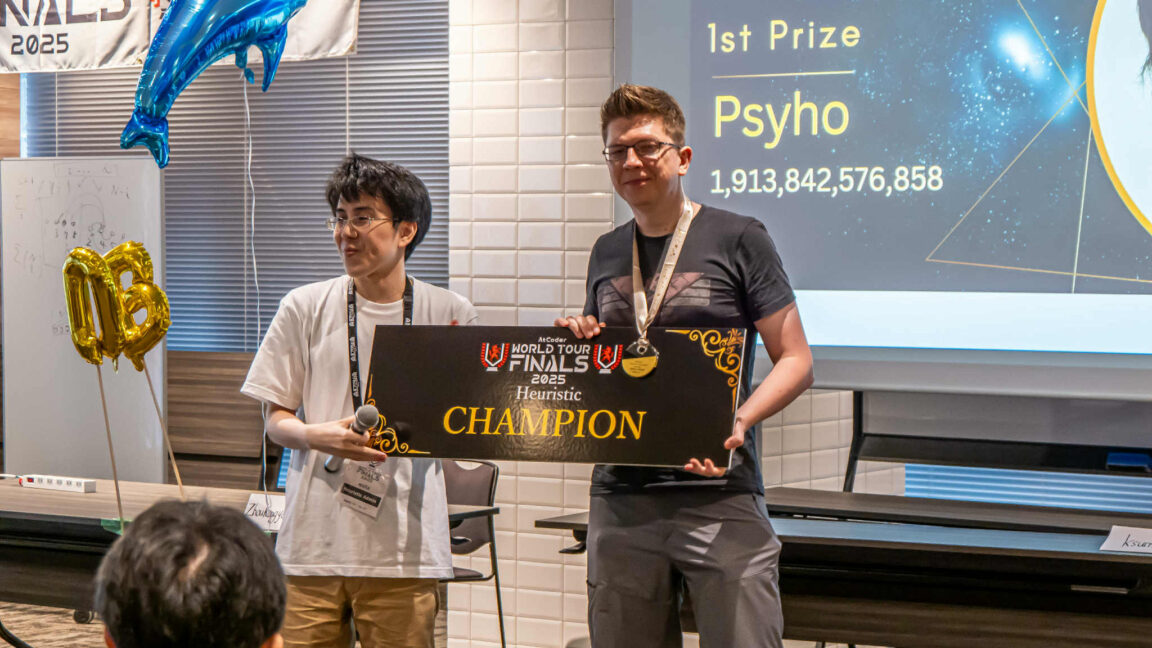While Dębiak won 500,000 yen and survived his ordeal better than the legendary steel driver, the AtCoder World Tour Finals pushes humans and AI models to their limits through complex optimization challenges that have no perfect solution—only incrementally better ones.
Coding marathon tests human endurance against AI efficiency
The AtCoder World Tour Finals represents one of competitive programming’s most exclusive events, inviting only the top 12 programmers worldwide based on their performance throughout the previous year. The Heuristic division focuses on “NP-hard” optimization problems. In programming, heuristics are problem-solving techniques that find good-enough solutions through shortcuts and educated guesses when perfect answers would take too long to calculate.
All competitors, including OpenAI, were limited to identical hardware provided by AtCoder, ensuring a level playing field between human and AI contestants. According to the contest rules, participants could use any programming language available on AtCoder, with no penalty for resubmission but a mandatory five-minute wait between submissions.

Final leaderboard results for the 2025 AtCoder World Finals Heuristic Contest, showing Dębiak (as “Psyho”) on top.
Credit:
AtCoder
The final contest results showed Psyho finishing with a score of 1,812,272,558,909 points, while OpenAI’s model (listed as “OpenAIAHC”) scored 1,654,675,725,406 points—a margin of roughly 9.5 percent. OpenAI’s artificial entrant, a custom simulated reasoning model similar to o3, placed second overall, ahead of 10 other human programmers who had qualified through year-long rankings.
OpenAI characterized the second-place finish as a milestone for AI models in competitive programming. “Models like o3 rank among the top-100 in coding/math contests, but as far as we know, this is the first top-3 placement in a premier coding/math contest,” a company spokesperson said in an email to Ars Technica. “Events like AtCoder give us a way to test how well our models can reason strategically, plan over long time horizons, and improve solutions through trial and error—just like a human would.”

